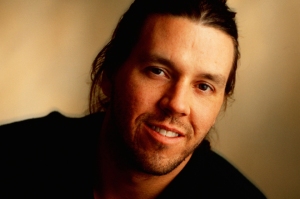I was originally seduced by the commencement speech David Foster Wallace gave at Kenyon College in 2005, titled “This is Water”.
Of course, David Foster Wallace is a name you hear all the time, a towering figure in the world of modern literature. (There’s something about that triple moniker that adds gravitas.) However, I had never read a single thing DFW wrote until I stumbled upon the speech. It was so lovely, so compassionate in its view of everyday life, so exactly the philosophy I would want my children to absorb that I was hooked.
So I bought the massive tome that is Infinite Jest, DFW’s most famous novel. (Such a great title too!) It’s a very long book, but I’m not afraid of words so I plunged in…and stopped. And tried again from the beginning…and stopped. After a third attempt, I threw in the towel and loaned it to a friend.
However, as serendipity would have it, D.T. Max, who wrote a well-researched biography of David Foster Wallace, came to speak at my local women’s club. He gave a fascinating presentation, so I bought his book Every Love Story is a Ghost Story and read it with great interest. After learning of DFW’s struggles with chronic depression and addiction and how heroically he fought his demons, I wanted to give his work another chance.
I suggested that my book group read The Girl With Curious Hair, a collection of David Foster Wallace’s short stories. Once again I plunged into his writing with high hopes. Once again, I found I couldn’t finish the book. Every member of my book group struggled with the stories, but we had a very intense and lively discussion about them. So they refused to allow me to apologize for subjecting them to such difficult reading.
I confess that I won’t be reading any more David Foster Wallace, but I don’t regret the time I spent with him. His writing can be absolutely glorious; the kind of sentences I want to re-read a hundred times, knowing I will never, ever be able to write anything even half that amazing. His vocabulary is spectacular and perfectly calibrated. I revel in the way he undercuts his flights of gorgeousness with a dive into the rhythms of everyday speech.
So why do I struggle to read him? I suppose his themes and his characters don’t resonate with me. Perhaps I am just too old for a writer who is all about tearing down false idols and snarkily shredding the culture around him; that’s more appealing to the younger reader, I think. I like DFW at his simplest, when he is speaking from his heart.
So I choose to remember David Foster Wallace as the man who said, “The only thing that’s capital-T True is that you get to decide how you you’re going to try to see it. You get to consciously decide what has meaning and what doesn’t. You get to decide what to worship…”

